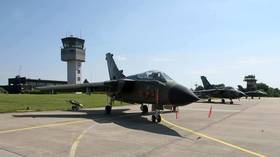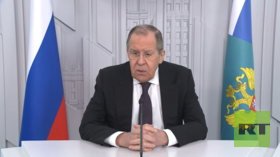NATO training for nuclear strikes against Russia – Moscow

NATO is developing the capacity for devastating nuclear strikes against Russia – which includes involving members of the alliance who don't have such weapons in training operations – Moscow’s top arms control official has claimed.
In an interview with TASS on Thursday, Vladimir Yermakov, Director of the Department of Arms Control and Nonproliferation in the Russian Foreign Ministry, said that the US was in the process of modernizing its atomic capabilities in Europe and had deployed missiles in the territories of several other member states.
“According to expert analysis, there are five non-nuclear NATO countries holding around 200 American B61 nuclear bombs,” Yermakov stated. “There is also the infrastructure to support the operational deployment of these weapons, which are capable of reaching Russian territory and striking a wide range of locations, including strategic ones.”
The director emphasized that while the missiles are controlled by Washington, the nuclear development is a collaborative effort. “There are ‘joint nuclear missions’ between NATO countries, in the course of which non-nuclear members of the alliance take part in training sessions to develop American nuclear capabilities against us,” he claimed.
Yermakov also said that the withdrawal of US nuclear weapons from Europe is one of Moscow’s primary goals in ongoing security negotiations.
“We are adamant that NATO’s ‘joint nuclear missions’ must immediately be halted, all American nuclear weapons must return to US territory, and the infrastructure that enables its swift deployment be liquidated,” he commented, saying that these proposals were included in the list of security demands that Moscow delivered to Washington in December.
On Thursday, Russian Foreign Minister Sergey Lavrov expressed disappointment in the American response to the proposals, saying that the US had refused to make concessions concerning the expansion of NATO in eastern Europe. “The main issue is our clear position on the unacceptability of further NATO expansion to the east and the deployment of highly-destructive weapons that could threaten the territory of the Russian Federation,” the diplomat explained.

